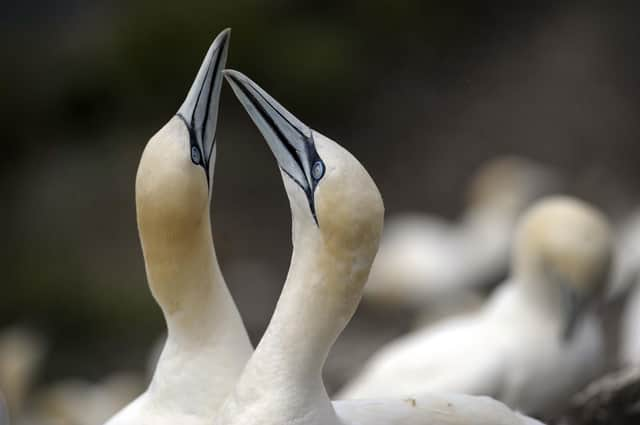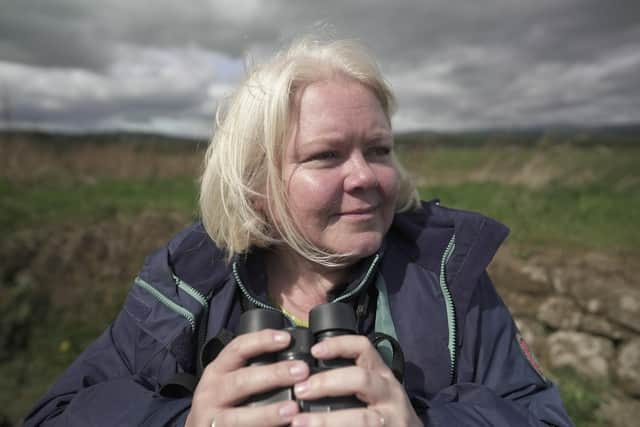We're sending an SOS to Save Our Seabirds - Anne McCall


You may have heard that Scotland’s seabirds are currently facing a catastrophe – an outbreak of Highly Pathogenic Avian Influenza (HPAI) like nothing we've seen before in wild birds in the UK.
It started late last summer when, at the end of the breeding season, just before they left our shores, a number of great skuas (bonxies) died in the very north of Scotland of HPAI. Then last autumn it affected large numbers of barnacle geese that breed in Svalbard in Norway and spend the winter on the Solway estuary. Counts of live birds suggest 16,500 individual birds were lost – around 38 per cent of the population – making it the first time HPAI has had a population level impact on wild birds here.
Advertisement
Hide AdAdvertisement
Hide AdThis spring it quickly became clear that our seabirds were suffering particularly in Shetland, Orkney, St Kilda and Bass Rock but with birds washing up all down the east coast.
You may have come across this yourselves when visiting the coast this spring. Sadly, more and more people are likely to see dead birds on beaches as we progress through the summer holidays.
Thousands of seabirds, especially gannets and bonxies but also terns, guillemots and other species have already died, and we don't know the full scale of the tragedy.
Numbers from a handful of areas suggest it could be catastrophic with reports of 50 to 85 per cent declines in the number of adults in some great skua colonies – a species where Scotland supports 56 per cent of the world's population. It isn't just the UK which is seeing mass mortality of seabirds either; there are reports of an entire tern colony, more than 3,000 pairs, wiped out in the Netherlands.
It is heart-breaking and is taking a heavy emotional toll on colleagues facing these harrowing scenes day to day.


It is also deeply concerning. Seabirds are long-lived, slow to reach breeding age and rear relatively few chicks each year. When adults die in large numbers, populations cannot breed fast enough to make up the losses.
Many of Scotland's seabirds were already struggling from food shortages, from being killed by fishing gear or poorly placed offshore development, from eggs and chicks being eaten by invasive non-native species. These human-induced pressures that we’ve known about for years mean we've already seen significant declines. In Scotland, the index of 11 annually monitored breeding seabirds had already declined by 49 per cent since 1986 before the impacts of HPAI began.
Now avian influenza, another threat that originated from human activity, this time in commercial poultry farms in East Asia, is threatening them.
Something needs to change!
Advertisement
Hide AdAdvertisement
Hide AdThe good news is there are things we or more accurately the Scottish Government can do.
We're grateful NatureScot has announced they’ll lead a task force to co-ordinate a national response to the current crisis. We hope this group will quickly create a HPAI in wild birds response plan and that this will help achieve co-ordination on testing, monitoring, research, biosecurity, disturbance and carcass collection and disposal.
The task force will also look at what needs to happen to build resilience in seabird populations. We need action on closing industrial sandeel fisheries, reducing deaths in fishing gear, a national programme of island restoration and biosecurity to protect seabirds from invasive species and for marine renewables to minimise further harm to nature and only happen alongside measures to restore nature. The pressures facing seabirds are caused by humans and fixable by humans. But we must act now, and we must act fast!
Please do not touch dead or dying birds and keep dogs away from sick and dead birds. If you come across five or more dead birds, please report to the DEFRA helpline on 03459 335577.
Anne McCall, Director of RSPB Scotland
Comments
Want to join the conversation? Please or to comment on this article.